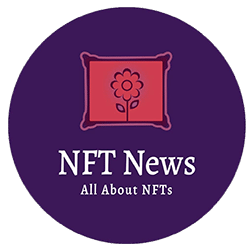Beijing’s government publicizes its vision for the development of the city’s Web 3.0 sector, marking both its commitment to the emerging technology and the challenges it must overcome.
A white paper for the future
On Saturday, Beijing’s government released a seminal white paper, laying out its intentions and potential stumbling blocks in the city’s quest to develop the Web 3.0 industry. This industry, the next step in internet evolution, integrates decentralized blockchain technologies, the metaverse, and non-fungible tokens (NFTs).
With this move, Beijing joins a growing list of cities in the country signaling their intent to venture into the Web3 sphere.
Challenges and prospects in Web 3.0 development
The Beijing Municipal Science and Technology Commission, during the unveiling of the white paper at the Zhongguancun Forum in Beijing, acknowledged that the city must confront a series of challenges as it charts its course in Web3 industries. These challenges include sourcing the right talent, preserving the integrity of blockchains, and crafting the appropriate legal framework, according to the Commission’s Saturday social media post.
The white paper defines Web3 as a three-dimensional online space that merges virtual reality with reality, thus providing a more immersive experience.
This could bolster human communication and increase the efficacy of economic activities. As of April, about 30 provincial and municipal governments across the country have introduced guidelines or policies pertaining to Web3 development. The paper also mentions that the Web3 sector, though promising, is still in its early stages and has limited applications at this time.
Towards a Web 3.0 future
Following this white paper, a roadmap of sorts for the city is expected to be enacted by the Beijing government agency’s, aimed at boosting Web3 development. This move is seen as intriguing by industry experts, given the upcoming regulatory changes on cryptocurrency trading platforms in Hong Kong on June 1. The city’s Chaoyang district also plans to invest heavily in local Web3 industries.
The white paper and Beijing’s commitment to the Web3 sector have elicited responses from key players in the crypto world. Justin Sun, the founder of the Tron blockchain platform, noted that China’s commitment to the Web3 industry symbolizes an important step towards acknowledging the transformative potential of decentralized systems and blockchain-based solutions.
Despite banning crypto trading in 2021, China has recognized the potential of blockchain technology. Recently, Zhengzhou’s municipal government proposed support for metaverse companies, which includes establishing a fund solely dedicated to the industry. Beijing’s journey into the world of Web3 may not be as smooth as a silk scroll, but it’s a journey the city is prepared to embark on, one block(chain) at a time.

This information is published by the NFT News media team.











